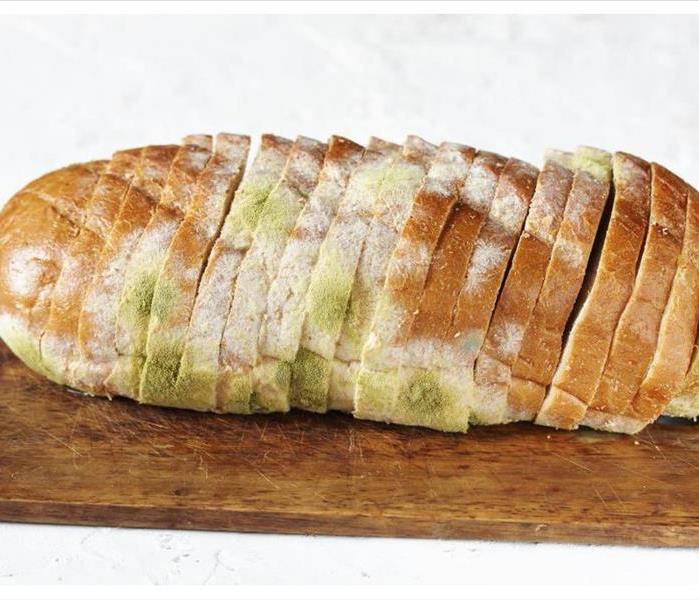Preventing Bread From Getting Moldy
11/17/2020 (Permalink)
It's possible for mold to grow on almost anything, as long as there's an adequate amount of moisture for it to thrive off of. Even so, some items are significantly more prone to mold growth than others, including bread. Read on to learn how to prevent bread mold from forming in your kitchen in Louisa, VA.
Mold Prevention Tips
The following tips can help prevent mold from forming on your freshly baked or bought bread:
Consume the bread as quickly as possible: You don't necessarily have to feast on the entire loaf the second you return from the grocery store, but you should attempt to avoid storing it for long periods of time.
Store your bread in a breadbox: Breadboxes are nifty tools designed to keep and store bread for prolonged periods. They help keep your bread dry by preventing moisture from building up. Even so, they can only do their job for so long, so don't assume that your bread is automatically safe.
Use ingredients that contain oil when baking bread: If you prefer to bake your own bread, opt for ingredients that contain oils. This includes eggs, milk, butter and more. These ingredients help prolong your bread's freshness.
Store bread in the freezer for prolonged periods: If you really do need to keep your bread fresh for a long time, your best bet is to store it in the freezer. Mold spores aren't capable of surviving in conditions that cold.
What to Do When You Find Bread Mold
Even if you do everything right, safety is not always guaranteed. If you do find fungus growth on your bread, then you need to throw it away. Store the moldy bread in a plastic bag before disposing of it in a covered trash can. Next, thoroughly clean the area where the bread was found, as the spores can spread quickly. Fridge mold can quickly infect the rest of your fresh ingredients.
Bread mold is a common occurrence that isn't necessarily indicative of a larger mold problem. If you do suspect a bigger issue, contact mold remediation experts for support.




 24/7 Emergency Service
24/7 Emergency Service
